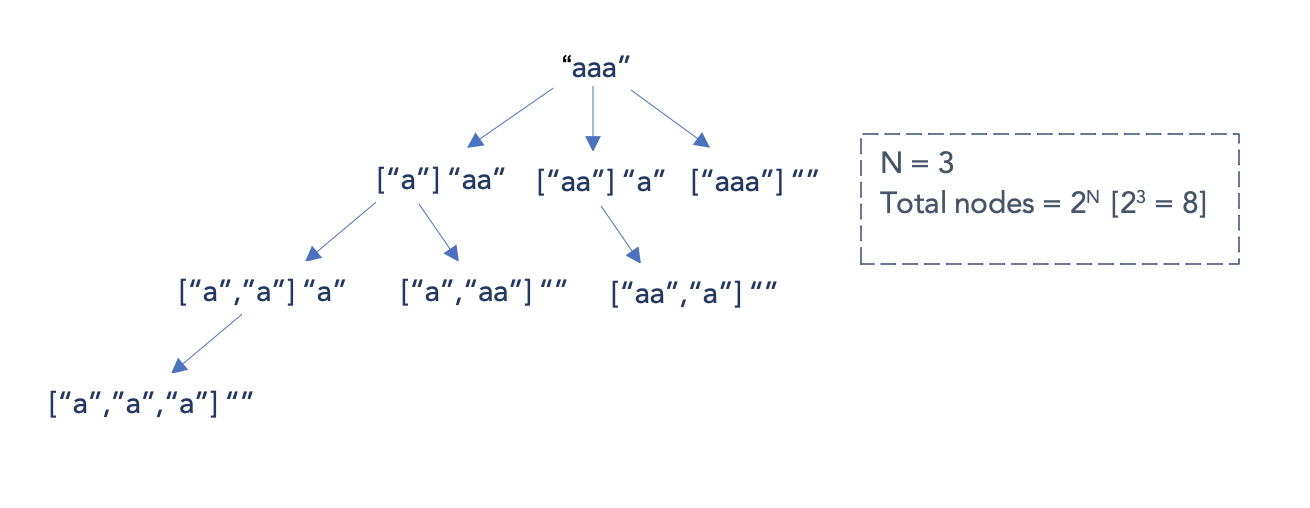Palindrome Partitioning
Problem
Given a string s, partition s such that every substring of the partition is a palindrome. Return all possible palindrome partitioning of s.
A palindrome string is a string that reads the same backward as forward.
Example 1:
Input: s = "aab" Output: [["a","a","b"],["aa","b"]]
Example 2:
Input: s = "a" Output: [["a"]]
Constraints:
1 <= s.length <= 16scontains only lowercase English letters.
Solution
/**
* @param {string} s
* @return {string[][]}
*/
var partition = function(s) {
const res = [];
backtrack(res, 0, [], s);
return res;
};
var backtrack = function(res, start, path, s) {
if (start === s.length) {
res.push([...path]);
} else {
for (let i = start; i < s.length; i++) {
if (isPalindrome(s, start, i)) {
path.push(s.substring(start, i + 1));
backtrack(res, i + 1, path, s);
path.pop();
}
}
}
};
var isPalindrome = function(s, l, r) {
while (l < r) {
if (s[l++] !== s[r--]) {
return false;
}
}
return true;
};
We will implement a backtracking (DFS) solution. Essentially, we try all possible substring partition of s and slowly build up res. If the current substring from s[start:i + 1] is a palindrome, we add it to path, and recursively try to find a substring partition for the rest of s (ie. s[i + 1:s.length]). Once we reach the end of s, we push our valid partition path into res and backtrack.
For example, if s = "aaa", the recursion tree can be illustrated as follows:
